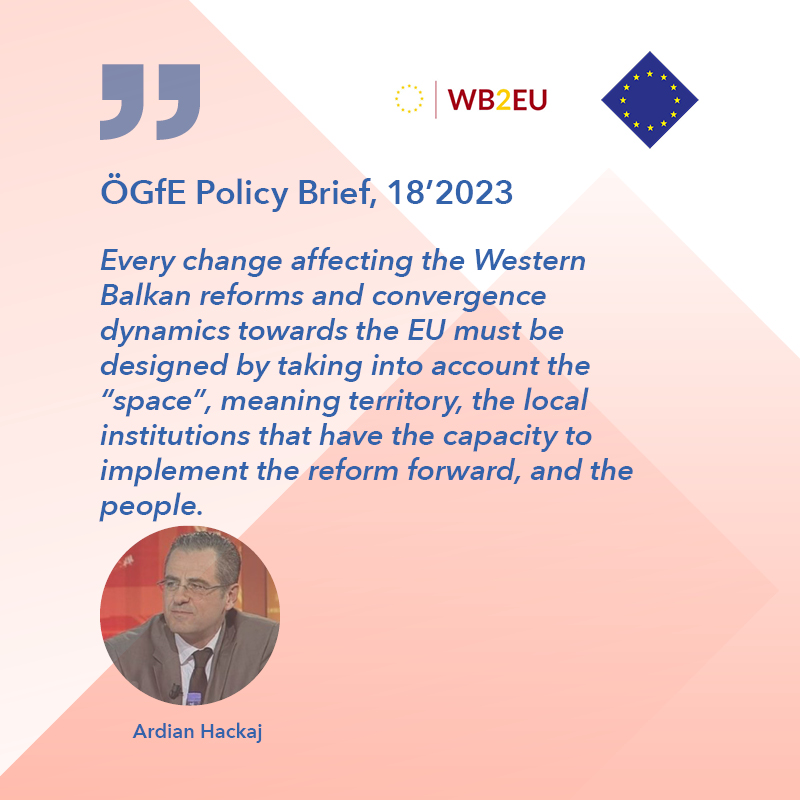Convergence of the Western Balkans towards the EU: from enlargement to cohesion, Ardian Hackaj, ÖGfE Policy Brief, 18’2023
There is a gap between the six countries of the Western Balkans (WB6) and their partners in the European Union (EU) in human capital, the quality of its infrastructure, the structure of the economy, and the quality of local institutions, factors that condition the WB6 growth rate. The speed of WB6 convergence towards the EU defines the pace of enlargement progress.
All WB6 countries are fully engaged in progressing in the main reform areas that are transforming their institutions, developing their economies, and improving the quality of life of their citizens, and the European Union, through its enlargement mechanism and funding, is supporting them to make these necessary advancements. But on their way to membership, WB6 economies must grow quickly to catch up with their EU peers, and local infrastructure must be upgraded and extended.
This Policy Brief creates a methodological framework that links the local infrastructure, domestic institutions, and people, allowing us to understand the dynamics and complexity of sustainable and resilient development paths as well as identify entry points for the WB6 and EU policy-makers.
Policy Recommendations
- Every change affecting the Western Balkan reforms and convergence dynamics towards the EU must be designed by taking into account the “space”, meaning territory, the local institutions that have the capacity to implement the reform forward, and the people.
- The enlargement dynamics and in-built connectivity with the EU provide the rails along which Western Balkan countries will develop. However, in an ever-changing world, we must be aware of competing models of development that interact with each node of the Western Balkans triangle (space, institutions, and people).
- People (civil society organisations, small and medium-sized enterprises, academia, or other interest groups) have to be at the centre of all policies in order to ensure democratic institutions.
WB6 citizens should enjoy employment, good health services, education, and social services and must keep their institutions accountable.
Ardian Hackaj Tweet

Photo: Gerd Altmann / Pixabay


